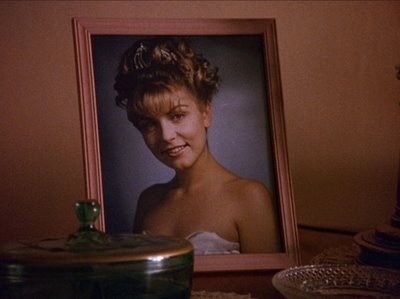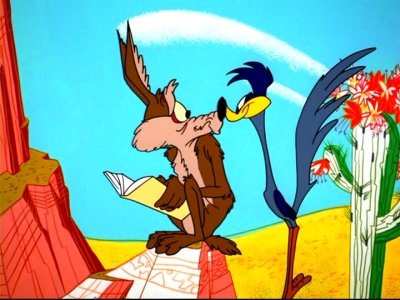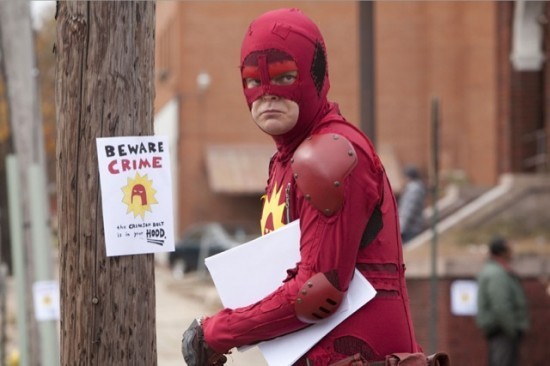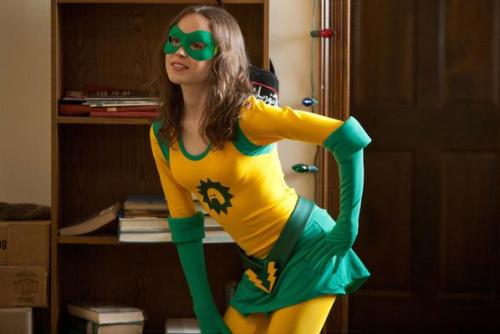
88. Twin Peaks
"Falling (Twin Peaks Theme)"
Written by Angelo Badalamenti and David Lynch
Performed by Julee Cruise
If you're familiar with David Lynch (and you should be if you're reading movie blogs on the internet), you know his signature style. Disconcerting paranoia, isolationism, confusion and discomfort for the sake of eeriness. His 1990 venture into television is no exception, and the theme music is a great accompaniment. Its earthy tones, its dream-like melody and its haunting bass notes tell us melodically that the seemingly innocent small town of Twin Peaks is far, far more complicated than donuts and a damn fine cup of coffee.

"Falling (Twin Peaks Theme)"
Written by Angelo Badalamenti and David Lynch
Performed by Julee Cruise
If you're familiar with David Lynch (and you should be if you're reading movie blogs on the internet), you know his signature style. Disconcerting paranoia, isolationism, confusion and discomfort for the sake of eeriness. His 1990 venture into television is no exception, and the theme music is a great accompaniment. Its earthy tones, its dream-like melody and its haunting bass notes tell us melodically that the seemingly innocent small town of Twin Peaks is far, far more complicated than donuts and a damn fine cup of coffee.
87. The Road Runner Show
"Road Runner"
by Barbara Cameron
 Looney Tunes anthology shows are always hard to classify in terms of television. Bugs Bunny and friends are mainstays of entertainment and animation, but exist almost entirely in a bygone and estranged format: the theatrical animated short. Practically everyone know them from one of many, many televised anthology shows, which collected the shorts into half-hour programming blocks. They're TV shows, but not really TV shows... it's a headache.
Looney Tunes anthology shows are always hard to classify in terms of television. Bugs Bunny and friends are mainstays of entertainment and animation, but exist almost entirely in a bygone and estranged format: the theatrical animated short. Practically everyone know them from one of many, many televised anthology shows, which collected the shorts into half-hour programming blocks. They're TV shows, but not really TV shows... it's a headache.
While most are quick to herald "Overture, curtain, lights..." as the definitive Looney Tunes TV theme, I'm especially partial to The Road Runner Show for two reasons. First, Road Runner and Wile E. Coyote are the best of the Looney Tunes. Second, this theme is regularly performed at Barenaked Ladies concerts, and is much better than it rightfully should be.
"Road Runner"
by Barbara Cameron
 Looney Tunes anthology shows are always hard to classify in terms of television. Bugs Bunny and friends are mainstays of entertainment and animation, but exist almost entirely in a bygone and estranged format: the theatrical animated short. Practically everyone know them from one of many, many televised anthology shows, which collected the shorts into half-hour programming blocks. They're TV shows, but not really TV shows... it's a headache.
Looney Tunes anthology shows are always hard to classify in terms of television. Bugs Bunny and friends are mainstays of entertainment and animation, but exist almost entirely in a bygone and estranged format: the theatrical animated short. Practically everyone know them from one of many, many televised anthology shows, which collected the shorts into half-hour programming blocks. They're TV shows, but not really TV shows... it's a headache.While most are quick to herald "Overture, curtain, lights..." as the definitive Looney Tunes TV theme, I'm especially partial to The Road Runner Show for two reasons. First, Road Runner and Wile E. Coyote are the best of the Looney Tunes. Second, this theme is regularly performed at Barenaked Ladies concerts, and is much better than it rightfully should be.
86. Dead Like Me
"Dead Like Me Theme"
by Stewart Copeland
Dead Like Me was a satirical fantasy show depicting death and the afterlife as just another bureaucracy. As if the great unknown was actually quite mundane and unexceptional. And that's what makes this opening so clever. The series can be summed up completely with shots of the normally intimidating Grim Reaper going through the blase motions of a white-collar city dweller. The peppy, calypso music adds to the ridiculousness of the contrast.
 85. MacGyver
85. MacGyver
"MacGyver Theme"
by Randy Edelman
More 80s-synth awesomeness. MacGyver was set apart from other cop shows, spy capers and crime dramas by the ludicrously resourceful abilities of its protagonist. Every MacGyver episode was like a televised point-and-click adventure game, but with far less trial and error (Use screwdriver on door? Use battery on door? Use water glass on door?) Played by Richard Dean Anderson, MacGyver was one of the few non-hockey playing men to ever look cool with a mullet. Combining 80s-action, an unconventional gimmick, and mullet prowess into one 90-second montage was no easy task, but they did it. The music is so riveting, you could synch it up to your pet cat and get the same effect.
84. Teenage Mutant Ninja Turtles
"Teenage Mutant Ninja Turtles Theme"
Written by Chuck Lorre
Composed by Dennis C Brown
Teenage, Mutant, Ninja, and Turtles. Four cumbersome, multi-syllabic words that songwriters should avoid. But not only does the TMNT theme feature all four words, it keeps shouting them over and over again in quick succession. And it works. Anybody reared in the 80s and 90s will speak of this theme fondly, and for good reason; it's catchy, it draws you in, it compliments the feel of the series, and it's memorable. TMNT had a surprisingly long run for an animated series, nearly 200 episodes spread across ten seasons. In an attempt to rejuvenate interest and update the premise, the classic theme was revamped in season eight. But it was terrible, and since it's not on Youtube, I'm not going to break my back searching for it.
 83. Star Trek
83. Star Trek
"Theme from Star Trek"
by Alexander Courage
Space. The Final Frontier. The words carry such a deep cadence and gravitas, it's easy to see why William Shatner thought he could make a career as a spoken word artist. Even those unfamiliar with Star Trek can appreciate the theme and its place in the science-fiction genre. The operatic crooning that sounds almost entirely like a theremin. The whooshing sound effects. The ethereal tones. The pulsating drum beat. A harp, of all things. It has an instantly nostalgic effect on everybody, even to those born well after the 1960s. It's a retro-futuristic thing of beauty.

"Dead Like Me Theme"
by Stewart Copeland
Dead Like Me was a satirical fantasy show depicting death and the afterlife as just another bureaucracy. As if the great unknown was actually quite mundane and unexceptional. And that's what makes this opening so clever. The series can be summed up completely with shots of the normally intimidating Grim Reaper going through the blase motions of a white-collar city dweller. The peppy, calypso music adds to the ridiculousness of the contrast.
 85. MacGyver
85. MacGyver"MacGyver Theme"
by Randy Edelman
More 80s-synth awesomeness. MacGyver was set apart from other cop shows, spy capers and crime dramas by the ludicrously resourceful abilities of its protagonist. Every MacGyver episode was like a televised point-and-click adventure game, but with far less trial and error (Use screwdriver on door? Use battery on door? Use water glass on door?) Played by Richard Dean Anderson, MacGyver was one of the few non-hockey playing men to ever look cool with a mullet. Combining 80s-action, an unconventional gimmick, and mullet prowess into one 90-second montage was no easy task, but they did it. The music is so riveting, you could synch it up to your pet cat and get the same effect.
84. Teenage Mutant Ninja Turtles

"Teenage Mutant Ninja Turtles Theme"
Written by Chuck Lorre
Composed by Dennis C Brown
Teenage, Mutant, Ninja, and Turtles. Four cumbersome, multi-syllabic words that songwriters should avoid. But not only does the TMNT theme feature all four words, it keeps shouting them over and over again in quick succession. And it works. Anybody reared in the 80s and 90s will speak of this theme fondly, and for good reason; it's catchy, it draws you in, it compliments the feel of the series, and it's memorable. TMNT had a surprisingly long run for an animated series, nearly 200 episodes spread across ten seasons. In an attempt to rejuvenate interest and update the premise, the classic theme was revamped in season eight. But it was terrible, and since it's not on Youtube, I'm not going to break my back searching for it.
 83. Star Trek
83. Star Trek"Theme from Star Trek"
by Alexander Courage
Space. The Final Frontier. The words carry such a deep cadence and gravitas, it's easy to see why William Shatner thought he could make a career as a spoken word artist. Even those unfamiliar with Star Trek can appreciate the theme and its place in the science-fiction genre. The operatic crooning that sounds almost entirely like a theremin. The whooshing sound effects. The ethereal tones. The pulsating drum beat. A harp, of all things. It has an instantly nostalgic effect on everybody, even to those born well after the 1960s. It's a retro-futuristic thing of beauty.
"Can You Tell Me How to Get to Sesame Street?"
Composed and Written by Joe Raposo, Jon Stone and Bruce Hart
Harmonica by Jean "Toots" Thielemans
Ah, everybody's first theme song (at least everybody born after 1969). Nothing could be more indicative of Sesame Street and its legacy than its theme song. And for a show featuring a 7-foot tall, yellow, talking bird, it would have to be one heck of a theme song. It's a song full of playfulness and merriment, and that vibe is continued throughout the entire episode and halfway into the PBS News Hour. The theme is updated every season with a new lyrical track from a mixed-childrens choir, and is occasionally overhauled completely to address ever-changing interests and markets. As such, the theme currently playing may be different from the one you remember. Sorry if I crushed your childhood.
Composed and Written by Joe Raposo, Jon Stone and Bruce Hart
Harmonica by Jean "Toots" Thielemans
Ah, everybody's first theme song (at least everybody born after 1969). Nothing could be more indicative of Sesame Street and its legacy than its theme song. And for a show featuring a 7-foot tall, yellow, talking bird, it would have to be one heck of a theme song. It's a song full of playfulness and merriment, and that vibe is continued throughout the entire episode and halfway into the PBS News Hour. The theme is updated every season with a new lyrical track from a mixed-childrens choir, and is occasionally overhauled completely to address ever-changing interests and markets. As such, the theme currently playing may be different from the one you remember. Sorry if I crushed your childhood.

































